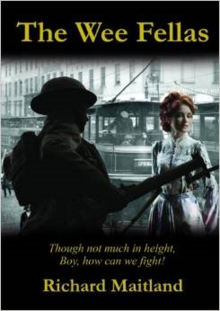
The Battle of Culloden took place on 16 April 1746, near Inverness in the Scottish Highlands. A Jacobite army under Charles Edward Stuart was decisively defeated by a British government force commanded by the Duke of Cumberland, thereby ending the Jacobite rising of 1745.

Isaac Rosenberg was an English poet and artist. His Poems from the Trenches are recognized as some of the most outstanding poetry written during the First World War.

Slaughterhouse-Five, or, The Children's Crusade: A Duty-Dance with Death is a 1969 semi-autobiographic science fiction-infused anti-war novel by Kurt Vonnegut. It follows the life experiences of Billy Pilgrim, from his early years, to his time as an American soldier and chaplain's assistant during World War II, to the post-war years. Throughout the novel, Billy frequently travels back and forth through time. The protagonist deals with a temporal crisis as a result of his post-war psychological trauma. The text centers on Billy's capture by the German Army and his survival of the Allied firebombing of Dresden as a prisoner of war, an experience that Vonnegut endured as an American serviceman. The work has been called an example of "unmatched moral clarity" and "one of the most enduring anti-war novels of all time".

Sir William Connolly is a Scottish retired comedian, actor, artist, musician, and television presenter. He is sometimes known by the Scots nickname the Big Yin. Known for his idiosyncratic and often improvised observational comedy, frequently including strong language, Connolly has topped many UK polls as the greatest stand-up comedian of all time. In 2022 he received the BAFTA Fellowship for lifetime achievement from the British Academy of Film and Television Arts.

The Battle of Philiphaugh was fought on 13 September 1645 during the Wars of the Three Kingdoms near Selkirk in the Scottish Borders. The Royalist army of the Marquis of Montrose was destroyed by the Covenanter army of Sir David Leslie, restoring the power of the Committee of Estates.
The Glasgow Fair is a holiday usually held during the second half of July in Glasgow, Scotland. 'The Fair' is the oldest of similar holidays and dates to the 12th century. The fair's earliest incarnation occurred in 1190, when Bishop Jocelin obtained permission from King William the Lion to hold the festivities.
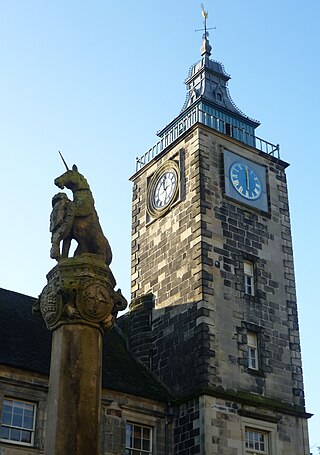
The Radical War, also known as the Scottish Insurrection of 1820, was a week of strikes and unrest in Scotland, a culmination of Radical demands for reform in the United Kingdom of Great Britain and Ireland which had become prominent in the early years of the French Revolution, but had then been repressed during the long Napoleonic Wars.
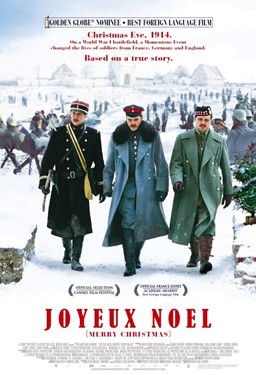
Joyeux Noël is a 2005 war drama film based on the Christmas truce of December 1914, depicted through the eyes of French, British, and German soldiers. It was written and directed by Christian Carion, and screened out of competition at the 2005 Cannes Film Festival.
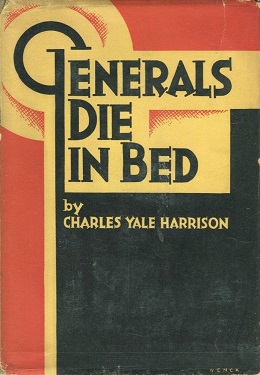
Generals Die in Bed is an anti-war novella by the Canadian writer Charles Yale Harrison. Based on the author's own experiences in combat, it tells the story of a young soldier fighting in the trenches of World War I. It was first published in 1930 by William Morrow.

A bantam, in British Army usage, was a soldier of below the army's minimum regulation height of 5 ft 3 in (160 cm).
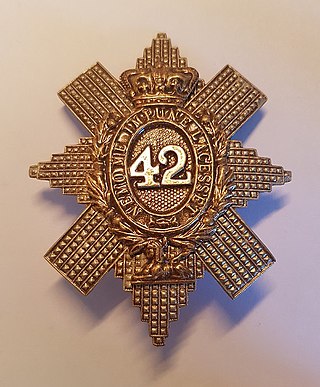
The 42nd Regiment of Foot was a Scottish infantry regiment in the British Army also known as the Black Watch. Originally titled Crawford's Highlanders or the Highland Regiment and numbered 43rd in the line, in 1748, on the disbanding of Oglethorpe's Regiment of Foot, they were renumbered 42nd, and in 1751 formally titled the 42nd (Highland) Regiment of Foot. The 42nd Regiment was one of the first three Highland Regiments to fight in North America. The unit was honoured with the name Royal Highland Regiment in 1758. Its informal name Black Watch became official in 1861. In 1881, the regiment was amalgamated with 73rd (Perthshire) Regiment of Foot under the Childers Reforms into The Royal Highland Regiment , being officially redesignated The Black Watch in 1931. In 2006, the Black Watch became part of the Royal Regiment of Scotland.

Historically, Scotland has a long military tradition that predates the Act of Union with England. Its soldiers form part of the armed forces of the United Kingdom, more usually referred to domestically within Britain as the British Armed Forces.
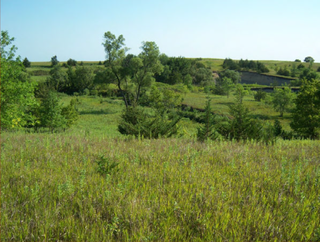
The Battle of Wood Lake occurred on September 23, 1862, and was the final battle in the Dakota War of 1862. The two-hour battle, which actually took place at nearby Lone Tree Lake, was a decisive victory for the U.S. forces led by Colonel Henry Hastings Sibley. With heavy casualties inflicted on the Dakota forces led by Chief Little Crow, the "hostile" Dakota warriors dispersed. Little Crow and 150 followers fled for the northern plains, while other Mdewakantons quietly joined the "friendly" Dakota camp started by the Sisseton and Wahpeton bands, which would soon become known as Camp Release.
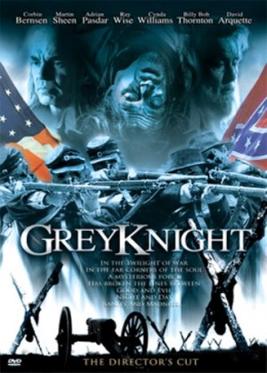
Ghost Brigade is a 1993 American supernatural horror film set during the American Civil War and directed by George Hickenlooper. Starring Corbin Bernsen, Adrian Pasdar, and Martin Sheen, the film was also released under the alternate titles The Killing Box, Grey Knight, and The Lost Brigade.

Major-General John Small was a career British military officer from Scotland who played a key role in raising and leading the 84th Regiment of Foot during the American Revolution. After the war, he settled with many of the men of the 84th Regiment in Douglas Township, Hants County, Nova Scotia. He later returned to Britain. He was appointed as Lieutenant Governor of Guernsey and promoted to major general, serving from 1793 until his death in 1796.

The Crow War, also known as the Crow Rebellion, or the Crow Uprising, was the only armed conflict between the United States and the Crow tribe of Montana, and the last Indian War fought in the state. In September 1887, the young medicine man Wraps-Up-His-Tail, or Sword Bearer, led a small group of warriors in a raid against a group of Blackfoot which had captured horses from the Crow reservation. Following the raid, Sword Bearer led his group back to the Crow Agency to inform the Indian agent of his victory, but an incident arose which ended with the young leader taking his followers into the mountains. In response, the United States Army launched a successful campaign to bring the Crow back to the reservation.
The 106th Brigade was a formation of the British Army during the First World War. It was raised as part of the new army also known as Kitchener's Army and assigned to the 35th Division. The brigade served on the Western Front.
The plan of raising a fencible corps in the Highlands was first proposed and carried into effect by William Pitt the Elder, in the year 1759. During the three preceding years, both the fleets and armies of Great Britain had suffered reverses, and it was thought that a "home guard" was necessary as a bulwark against invasion.

The Harlem Hellfighters is a graphic novel written by author Max Brooks with illustrations done by Caanan White. It is a fictionalized account of the experiences of the largely African American 369th Infantry Regiment, nicknamed the "Hell-fighters" by German soldiers, during the First World War.
In the fictional world of Terry Pratchett's Discworld series of novels, the Nac Mac Feegle are a type of fairy folk. They appear in the novels Carpe Jugulum, The Wee Free Men, A Hat Full of Sky, Wintersmith, I Shall Wear Midnight, Snuff and The Shepherd's Crown. At six inches tall, they are seen as occasionally helpful thieves and pests.
